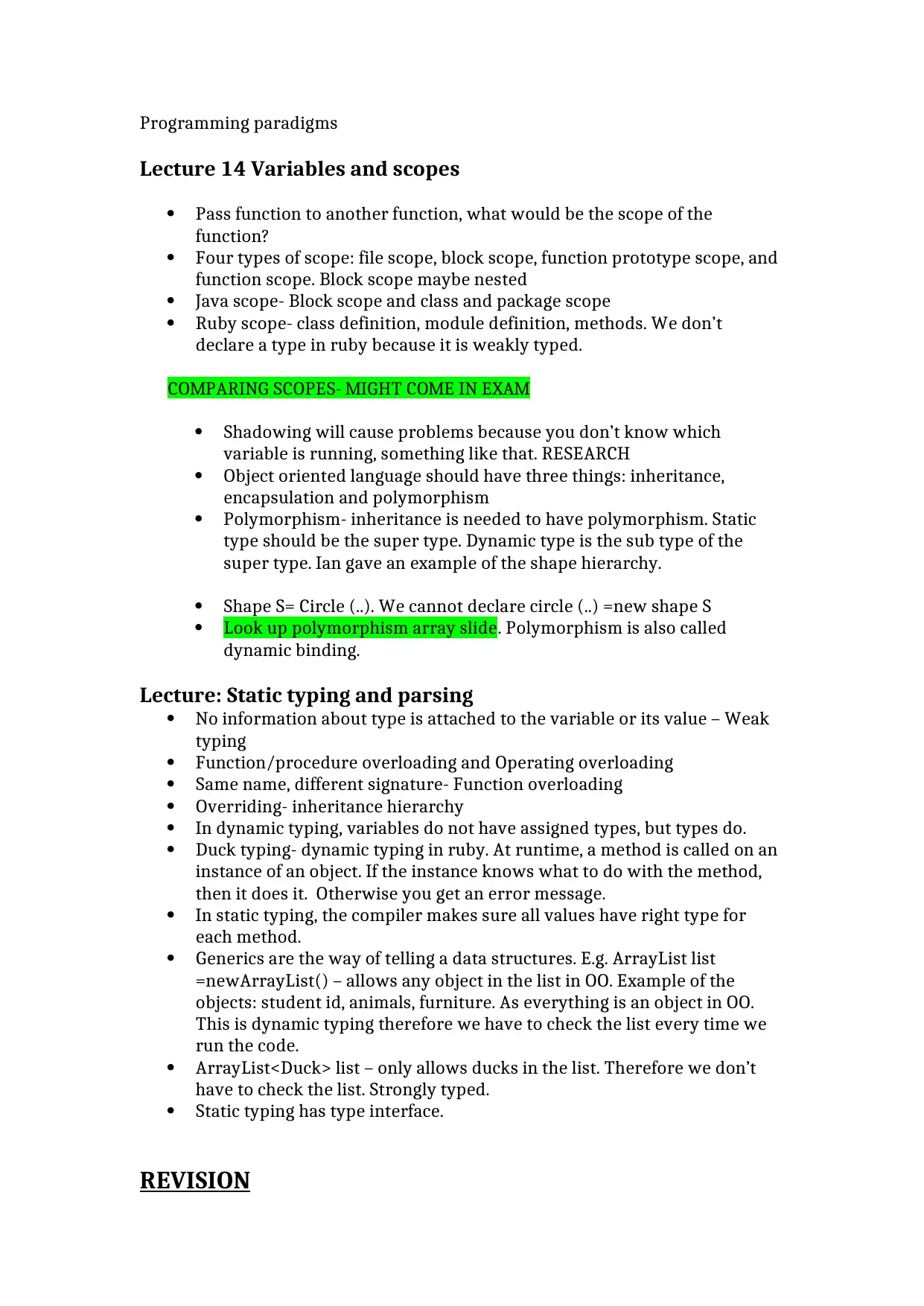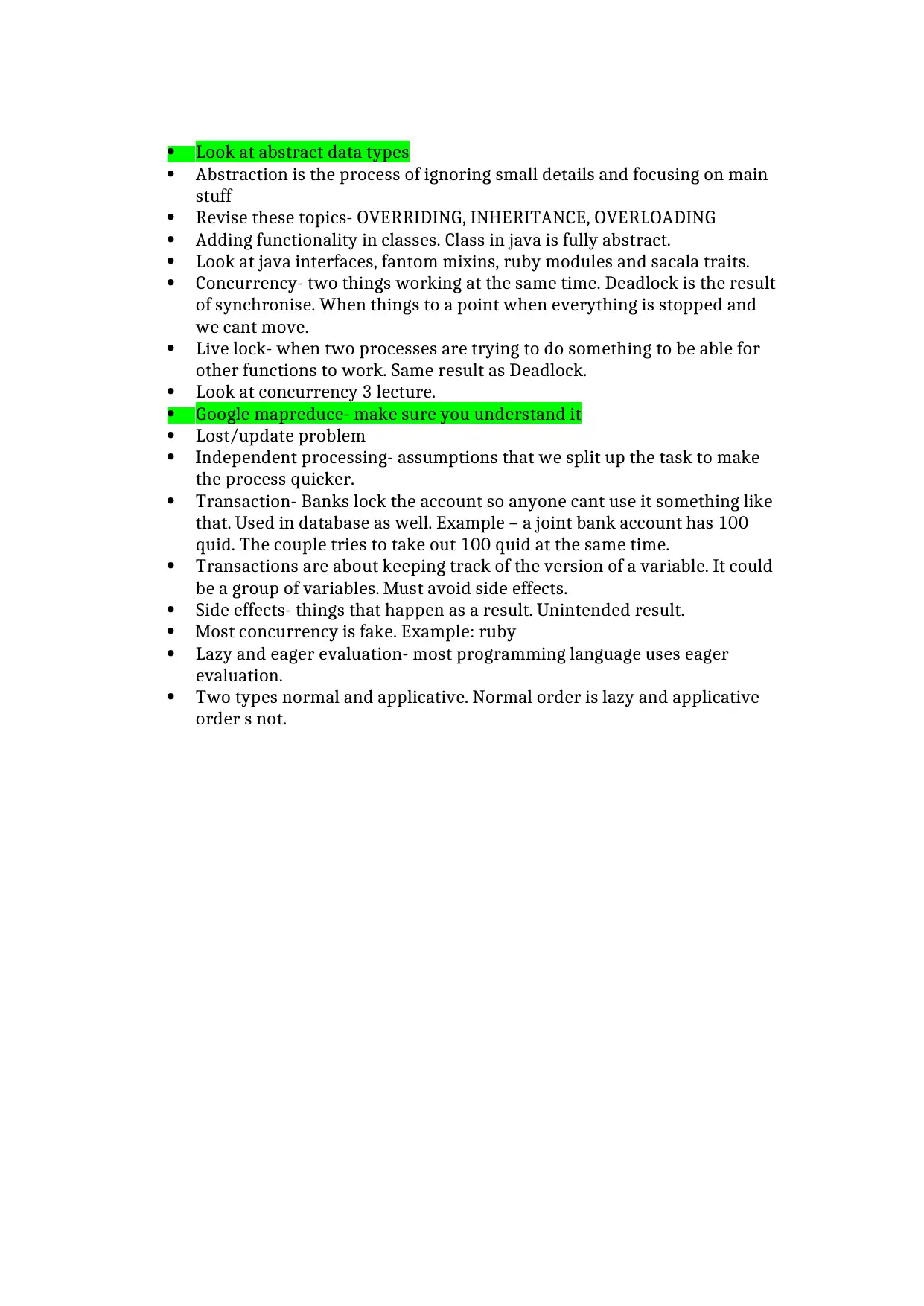Programming Paradigms Lecture Notes
VerifiedAdded on 2019/09/18
|2
|647
|530
Homework Assignment
AI Summary
This document appears to be a set of lecture notes on programming paradigms. It covers various topics including variable scope (file, block, function prototype, function scope), comparing scopes and shadowing issues. It delves into object-oriented programming principles like inheritance, encapsulation, and polymorphism, providing examples and highlighting the differences between static and dynamic typing. The notes also discuss function overloading and overriding, duck typing in Ruby, and the use of generics for static typing. A significant portion is dedicated to concurrency, including concepts like deadlock, livelock, independent processing, and transactions, along with explanations of lazy and eager evaluation. The notes conclude with a revision section highlighting key topics for review and further study, including abstract data types, Java interfaces, and Google MapReduce.
1 out of 2


![[object Object]](/_next/static/media/star-bottom.7253800d.svg)